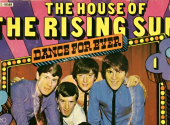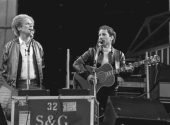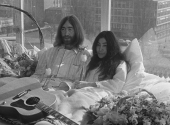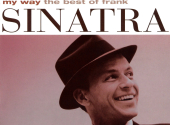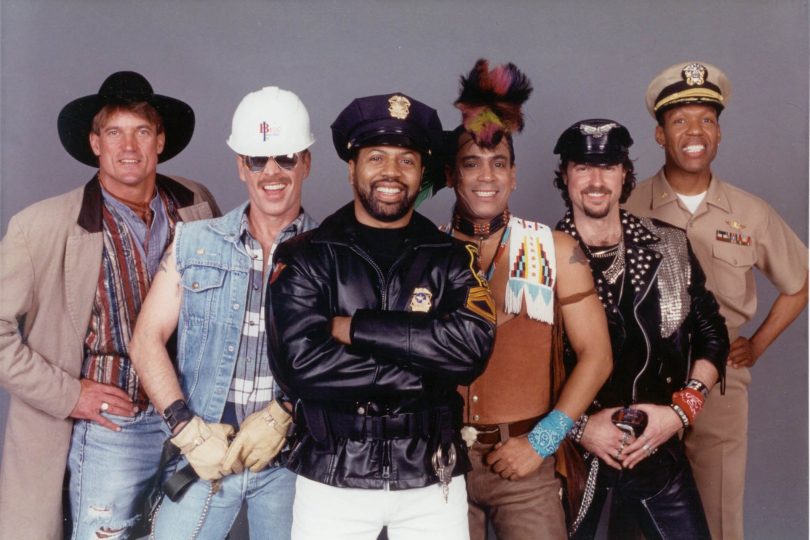
Story of a Hit #12: "Y.M.C.A."
While it's arguably one of the most-known group dances in the world, the song itself and the band behind it are so much more than that. "Y.M.C.A." is a larger-than-life disco hit, that despite being 40 years old, still finds its way into parties and sporting events worldwide. Today we're looking at the Village People and a hit that can turn the average person into a wannabe cheerleader.
Released in 1978, "Y.M.C.A." is both a song and a dance that has spread far and wide. While it is undoubtedly the Village People's biggest hit, the band had a string of successes in only their first 3 years of existence, namely "Macho Man", "In the Navy" and "Go West". This was because, like many of the great bands in popular music, the whole concept was invented by a savvy production team who knew exactly what they were aiming for, from the get-go.
Inspired by the New York gay disco scene
French producers and composers Jacques Morali and Henri Belolo, who had moved to the States in the '70s, created a series of successful songs including an arrangement of "Aquarela do Brasil" for a trio of female singers. The track "Brazil" was a hit, and resulted in the formation of The Ritchie Family, who would release a number of hits through the late '70s in collaboration with the team. The upbeat disco sound is unmistakenly similar to that of the Village People.
The story goes that Morali was at a gay disco in Greenwich Village, New York, and seeing men in various costumes of different macho stereotypes, had an idea to put together a band where each member would dress up as a sort of gay fantasy figure. Morali had already employed Victor Willis on a few of his previous project's tracks as a backup singer, and so in 1977 he supposedly told him: "I had a dream that you sang lead on my album and it went very, very big." Willis agreed, and so the Village People were born.
By the release of their second album Macho Man (1978), the famous backup singers and dancers were set, and they would accompany Willis everywhere he sang – be it on the stage, the street, or on a navy frigate loaned by the US Navy. Fulfilling Morali's original dream, they formed a sextet of figures from everyday life, bizarrely juxtaposed against each other; a cop, Native American, cowboy, leather man, construction worker and GI. Of course, today the image of them is quintessential to the era of '70s and '80s disco and tied very much to the gay culture of the era. In many ways, it was an ingenious idea.
With the following album, Cruisin', released in the same year, they made it big. And that was all down to the addictive chorus of a song that today is universally known.
A gay anthem
Images of those six men, dancing in (loose) synchronisation in various locations is a cultural meme of unquestionable significance. The Village People, a reference to the rich gay life of Greenwich Village from which the band took its original inspiration. In fact, the original idea for the band was to attract the gay disco market, and Jaques Morali never believed it would spread into the mainstream. Today, "Y.M.C.A." is generally acknowledged as one of the most famous gay anthems – aside from what the songwriters may or may not have intended.
The song is filled with double meanings, and while at face value you could say that it was free advertising for the Young Men's Christian Association, the song clearly alludes to the reputation the NGO had in the 70s as a hookup spot for young gay men.
In fact, the organisation actually threatened to sue the band for trademark infringement, which was settled out of court. Since then, however, the YMCA has expressed pride in the song itself, and it seems to have done its fair share of raising awareness about the organisation.
While Morali and Willis, who penned the song, may well have intended for the lyrics to catch the attention of the gay community, it's actually questionable how much the YMCA was a gay hangout when they released the song.
According to people who lived and used the YMCA in those days, it was a mixed space "with gay culture and working-class workouts coexisting in a single communal space". Apparently, the kind of people depicted in the video clip, for example, were not typical of the permanent residents, but rather of the weekend visitors who came for somewhere to crash. When you read into its history, you begin to see how the whole song is a sort of fantastic hyperbole, which I think is part of the reason it has stayed in our cultural canon.
A dance phenomena
Perhaps for many, it is the dance that makes Y.M.C.A stand out amongst the plethora of disco classics. Frantically trying to form the letters with your arms above your head is very much a mainstay of this hit. However, this specific dance did not originate from the band itself, which is why it is suspiciously absent from the original video clip.
In 1978 the Village People played on American Bandstand, and during the performance, you could see the audience attempting a sort of synchornised spelling of the letters Y, M, C and A. After they finished the song, the host of the show explained to the band that they had come up with this dance routine for the chorus – "do you think you can work that into your routine?" asked the host, to which Willis said: "I think we're going to have to."
This dance is now a cultural phenomenon, for example, setting a Guinness World Record in 2008 when over 40,000 people danced it together in Texas. It certainly seems that the song's longevity is at least partly down to the widespread popularity of this group dance.
In 2020, "Y.M.C.A." was added to the Grammy Hall of Fame as well as selected by the Library of Congress for its cultural significance, whose aim is "to preserve the sounds that have touched our hearts and shaped our culture". Victor Willis responded: "I had no idea when we wrote Y.M.C.A. that it would become one of the most iconic songs in the world, and a fixture at almost every wedding, birthday party, bar mitzvah and sporting event. I am glad that the music of Village People has made the world smile for over 40 years."
What do you think, is "Y.M.C.A." one of the greatest disco hits?
Leave your opinion in the comments below!
If you have found an error or typo in the article, please let us know by e-mail info@insounder.org.


